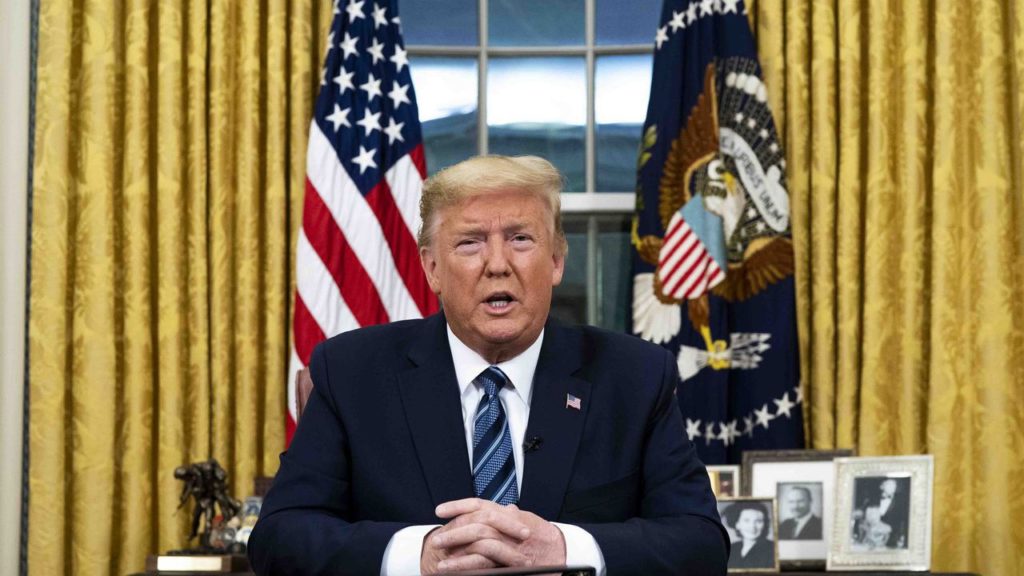US president Donald Trump has issued a ban on most arrivals from Europe, as a protective measure against the coronavirus.
The ban concerns all flights originating in the Schengen area, starting on Friday evening and lasting 30 days, the White House said. The United Kingdom and Ireland are not included in the ban, which also does not affect Americans returning home.
The number of confirmed cases of coronavirus has risen above 1,000 in the US, with the death toll already at 37. Among those infected, it was announced, is the actor Tom Hanks and his wife Rita Wilson.
The announcement comes on the day when the World Health Organisation (WHO) officially declared the coronavirus outbreak to be a global pandemic. That is the term applied when an outbreak spreads around the world more rapidly than expected, and where infections begin that are not directly linked to the initial outbreak, in this case in China. Secondary infections mean the virus has taken root in different countries at the same time.
President Trump went on TV to address the nation, arguing that the EU had not done enough to fight what he called a “foreign virus” and claiming the infection in the US had been “seeded” by European visitors.
“We made a lifesaving move with early action on China,” he said. “Now we must take the same action with Europe.”
By coincidence, Dr Anthony Fauci, director of the National Institute of Allergy and Infectious Diseases, was testifying before the House of Representatives yesterday, where he warned the outbreak was expected to get worse. “I can say we will see more cases, and things will get worse than they are right now,” he told representatives.
The virus, he said, is ten times more lethal than seasonal flu. President Trump had previously stated the figure was very much lower, arguing that the virus would disappear of its own accord when the weather turned warmer in about April.
The countries affected by the ban are Austria, Belgium, Czech Republic, Denmark, Estonia, Finland, France, Germany, Greece, Hungary, Iceland, Italy, Latvia, Liechtenstein, Lithuania, Luxembourg, Malta, Netherlands, Norway, Poland, Portugal, Slovakia, Slovenia, Spain, Sweden, and Switzerland.
Alan Hope
The Brussels Times

